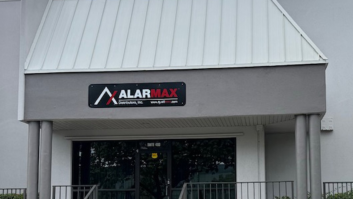LAS VEGAS -When GE Capital finally pulled the plug on the once venerable Montgomery Ward last month, was it simply an isolated incident or an indication of some greater retail malaise?
TWICE put that question to senior managers at some of the top CE specialty chains during the CES confab held here earlier this month. The consensus: It was the store, stupid.
“It’s not a new event. Wards was in a difficult condition for a long time,” observed Circuit City chairman/CEO Alan McCollough. “They were only around because GE Capital wanted to keep it alive. But their locations weren’t so terrific.”
McCollough added that the epidemic that took down scores of CE specialists in the 1990s is a thing of the past. “We’re pretty well past the ’90s wring-out,” he said. “It’s hard to imagine any retailer consolidation left.”
Shelley Miller, senior VP of Tweeter Home Entertainment Group, agreed with McCollough’s Montgomery Ward assessment. “It’s natural selection,” he said. “Those stores had no compelling reason for people to shop there.”
To Ultimate Electronics’ president Dave Workman’s view, one of Wards’ biggest problems was the lack of a clear consumer franchise. “Today, there’s absolutely no room for ambiguity with the consumer,” he said.
By contrast, he said that companies with a concise consumer proposition, such as Amazon.com and 800.com, have made the marketplace more competitive, ultimately requiring retailers to be more straightforward with their missions.
But Good Guys president Ken Weller sensed a certain foreboding in the Wards and Bradlees’ bankruptcies. “The consumer’s clearly got a view on where the retailer is in the sort of ladder in life,” he said, adding that he was most surprised about Sears closing 87 stores. “I’m not as optimistic. I think there’s going to be more closings in the next couple of years.”
Retail analysts generally agreed with the dealers’ autopsies, noting that despite ambitious restructuring following previous Chapter 11 filings, both Wards and Bradlees found themselves out-positioned, out-stored and at the end of their financial ropes amid a brutally competitive and lackluster retail environment.
Indeed, while the two chains struggled through their late-1990s reorganizations, more aggressive general merchants dined on their market share, including Wal-Mart with its low-price imperative, Target, with its hipster aspirations, and Kohl’s, which conquered discount apparel.
Similarly, the stores’ hardlines departments couldn’t compete with category killers Best Buy and Circuit City in electronics, or Wards’ closest channel competitor Sears in sales of major appliances.
While Bradlees follows fellow Northeast regional discounter Caldor into retail oblivion, the decision by Wards’ parent GE Capital to shutter the business was especially wrenching.
GE spent a billion dollars to bail out the highly leveraged merchant (and its lucrative credit card portfolio) in 1997 and last year committed an additional $100 million to a radical, systemwide store redesign program that was beginning to bear fruit.
Nonetheless, said Wards chairman/CEO Roger Goddu, “Although our remodeled stores continue to produce positive sales trends, we have not delivered the necessary financial result to warrant completion of our total company turnaround strategy.” Ultimately, in the wake of a dismal fourth quarter, GE pulled the plug.
Aside from the short-term flood of cheap, liquidated inventory, the impact of the bankruptcies will be less profound on suppliers-who had tightened their credit reins in recent months-and on retailers, who will vie for the stores’ remaining market share.
The feeding will be particularly frenzied in white goods, where Wards ranked fourth behind Best Buy, according to TWICE’s Major Appliance Retail Registry.













